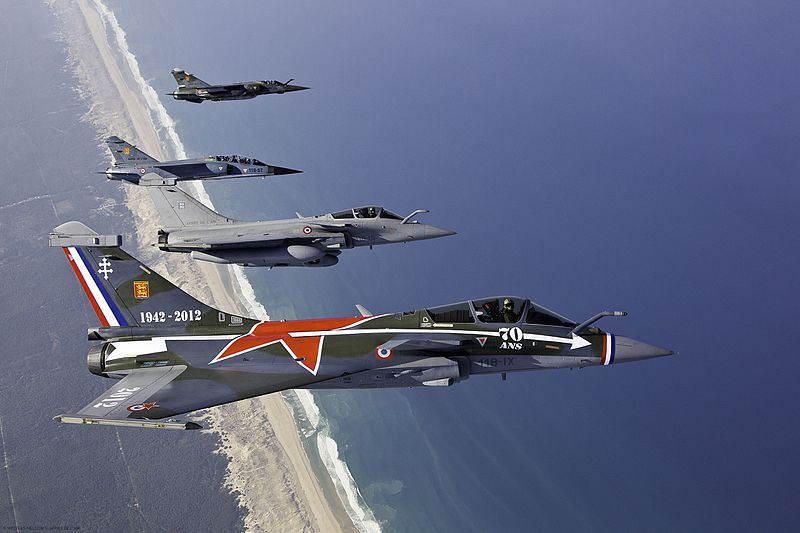
Rafale makers did not deliver on offset clause, says CAG
The national auditor, the Comptroller and Auditor General (CAG), has questioned the government’s offset policy on defence procurement, citing the example of 36 Rafale fighter jets bought from Dassault Aviation, saying the French manufacturer has not delivered on its promises on technology transfer.

The national auditor, the Comptroller and Auditor General (CAG), has questioned the government’s offset policy on defence procurement, citing the example of 36 Rafale fighter jets bought from Dassault Aviation, saying the French manufacturer has not delivered on its promises on technology transfer.
The CAG report prompted Congress to launch another attack on the Modi government. “The chronology of the biggest defence deal continues to unfold. The new CAG report admits that ‘technology transfer’ shelved in Rafale offsets. First, ‘Make in India’ became ‘Make in France’. Now, DRDO (Defence Research and Development Organisation) is dumped for tech transfer.”
CAG’s latest reports were tabled in Parliament, after which it issued a statement on Wednesday (September 23). “It was found that the foreign vendors made various offset commitments to qualify for the main supply contract but later, were not earnest about fulfilling these commitments.”
Under defence offset, a foreign supplier of equipment agrees to manufacture a given percent of his product (in terms of value) in the buying country. This may take place with technology transfer.
In the Defence Procurement and Procedure (DPP), the major feature of the 2016 offset policy is that it increases the threshold of defence offset to ₹2,000 crore from the level of ₹300 crore under “buy” and ‘buy and make” categories. This means that only those purchases of above ₹2,000 crore that the foreign company has to ensure 30% domestic value addition in India.
The offset policy was adopted by India in 2005 for all capital defence purchases above ₹300 crore made through imports. The foreign vendor, or Original Equipment Manufacturer (OEM), was required to invest at least 30 per cent of the value of the purchase in India’s defence or aerospace sectors.
Another major feature of DPP 2016 is the creation of a new category called ‘Indian Designed Developed and Manufacture’ (IDDM) and it has been given the highest priority. This category is created and promoted maximum to encourage domestic design of defence equipment.
Related news: Amid border stand-off with China, Rajnath says Rafale induction important
Referring to the Rafale deal, the CAG said, “For instance, in the offset contract relating to 36 Medium Multi Role Combat Aircraft (MMRCA), the vendors M/s Dassault Aviation and M/s MBDA initially proposed (September 2015) to discharge 30 per cent of their offset obligation by offering high technology to DRDO”.
The CAG said: “DRDO wanted to obtain technical assistance for the indigenous development of engine (Kaveri) for the Light Combat Aircraft. The vendor has not confirmed the transfer of this technology.”
The CAG statement does not mention any evaluation of the 50 per cent offset clause that was at the centre of a political storm before the 2019 general election due to the involvement of an Anil Ambani-led Reliance firm on the Indian side.
In its statement, the CAG said that from 2005 till March 2018, 46 offset contracts were signed with foreign vendors totaling ₹66,427 crore.
“Under these contracts, by December 2018, ₹19,223 crore worth of offsets should have been discharged by the vendors. However, the offsets claimed to have been discharged by them was only ₹11,396 crore, which was only 59 per cent of the commitment. Further, only 48 per cent (₹5,457 crore) of these offset claims submitted by the vendors were accepted by the Ministry,” the CAG noted.
Related news: India to get second batch of four Rafales in October
The CAG findings put a question mark on the government’s assurance on technology transfer in the Rafale fighter jet deal. The provision for offsets in defence procurement deals is seen as an engine to revive economic growth.
There are several ways for OEMs to meet their offset obligations, including foreign direct investment, offering free transfer of technology to Indian firms, and purchase of eligible products manufactured by Indian firms.
The CAG noted that obtaining technology transfer has been a particular failure. It said that “90 per cent of the investment by the vendors was in the form of direct purchase of goods and services from the Indian industry”. Besides, it said, “of the total value of offsets only 3.5 per cent was contracted to be discharged through FDI”.


